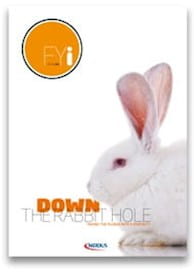FY2 was quickly ebbing and the tide of change was once again upon me. It was time to choose a specialty – but how would I know which was the right one for me? The experience, as ever, would be lasting. Was I happy and contented? Well that depends.
This year brought me into contact with some of the 60-odd specialties that make up medicine. It was these experiences, and those from FY1, that my colleagues and I would have to draw upon to decide which specialty we wanted to work in for the foreseeable future.
For my big decision, I turned to Freud – who else? “Experience consists of experiencing that which one does not wish to experience,” he said. Well, in other words, some decisions are easier to make than others.
I avoided the ‘cut’ in surgery and I left the ‘GP circuit’ to others. GP training statistically beckoned for the majority of the FY2 family but personally I drew on previous pre-medical experiences to galvanise my chosen route.
Where to begin
Before making a decision, I sat down to think about what exactly I had achieved during my foundation years – another stamp of approval ordained by senior signatures, a collection of scrubs to be washed (and returned) and a realisation that quality care can be delivered despite the condition of the building in which I worked (Stobhill Hospital). In a strange way, I had fallen in love with that edifice – a Victorian collection of endless corridors and tunnels. The place seemed to fit well with my vision of Lewis Carroll’s classic novel Alice in Wonderland. But which rabbit hole would I choose for my escape into the world of specialty training?
That tunnel had to go in the direction I desired. The specialty had to make use of what I perceived to be my best attributes. The journey I was embarking upon had to impact positively on patient care, whilst being an innovative and rewarding experience for myself. As Alice succinctly put it, “If you drink from a bottle marked poison, it’s almost certain to disagree with you sooner or later”. Decisions! Decisions! Decisions!
Taking the plunge
Psychiatry was my chosen career path and so it was off to Monklands. Wards 24 and 25 of this Scottish hospital are based below ground, accessible only by an endless maze of staircases and corridors which bear an uncanny resemblance to my interpretation of Alice’s journey into the void that was the ‘rabbit hole’.
Historical evidence demonstrates that this mental health unit in North Lanarkshire was conceived and constructed in the 1960s. Here those with mental illness are housed in a subterranean world with such diverse neighbours as the mortuary and pharmacy. It madewe wonder if public attitudes of the time perhaps were not the most enlightened when it came to mental illness? But NHS Lanarkshire are currently working on plans for a new, purpose-built acute mental health care unit in the area that could eventually replace this underground area with a modern treatment facility.
On my first day in my new specialty the welcome was warm and certainly appreciated. For me, it was the return to a hospital where I served my FY1 year. Although I was in familiar territory, I never imagined my decision would lead me back to my starting point.
The initial announcement that I wanted to work in psychiatry met with a mixed response in my peer group. Some visibly recoiled and most had negative views. If there was any semblance of doubt that a stigma was attached to psychiatry, then these views and reactions reminded me of such. “So you’re leaving medicine after all, Maggie?” said one devotee of core medical training. “Stethoscope for sale?” another commented. I don’t think so. Mental health patients also have physical health problems, a truth I’m reminded of almost daily in my clinical practice.
Tedious. Frustrating. I didn’t recognise these adjectives that some attributed to psychiatry, but rather I have found the terms ‘challenging’ and ‘rewarding’ to be more reflective of my day-to-day work. In essence, my inner resolve to persevere was aided by supportive seniors and a well-organised training programme – elements that are unheard of in some medical specialties.
As well as my daily work within the hospital environment, psychiatry offers the opportunity to work as part of a well-organised and coordinated team which includes community psychiatric nurses, social workers and occupational therapists. Outside visits include trips to patients’ homes, residential centres for the elderly and community clinics. Such diversity in both the composition of the multidisciplinary team and the surroundings is essential within psychiatry. It gives us as care providers a fuller picture of our patients’ needs and illustrates quickly if our patients require more help and support to keep them well.
I haven’t quite covered the entire psychiatric alphabet so far. However, a range of cases from addictions to phobias and anxiety to personality disorders have figured prominently in my work to date. I just can’t wait to deal with my first cases from Q to Z!
Deciding factors
My personal attributes and previous experiences formed a major part in my decision to train as a psychiatrist.
I believe communication, no matter the specialty, is paramount. “Speak English. I don’t know the meaning of half those long words, and I don’t believe you do either.” I have often thought the wise words of Alice in Wonderland’s Eaglet should feature prominently in every duty room as a reminder for all to keep in touch with patients. After all, they genuinely need and desire this.
A background of law coupled with a sense of justice for all and my voluntary work with both the homeless and within a hospice setting first made me aware of mental health issues. In particular, the experience of the homeless community of Glasgow honed my understanding of the dominant role played by poverty in undermining the confidence and physical well-being of this burgeoning subculture. Here, the realisation came that medication alone was not the total solution but an understanding and awareness of people’s problems, their background and culture allowed me to fully appreciate the need for a more holistic approach to be applied. In essence psychiatry can nurture such an approach.
The Foundation Programme served me well, but was no blinding light on the road to Damascus. It acted as a basis upon which further knowledge and experience could be built. In seeking a final decision I had to be prepared to look backwards before advancing towards a specialty. The final realisation dawned that my voluntary experiences had a bigger impact upon my decision to enter psychiatry than I first could have contemplated.
Perhaps the secret of a successful transition from foundation to specialty training rests in your ability to play to your strengths but not lose sight of your weaknesses. If you can keep that in mind, the rabbit hole won’t seem as daunting.
Dr Maggie Cairns is starting her specialist training year one programme at Monklands Hospital, Airdrie
Tips on choosing your specialty
MAKE THE MOST OF SPECIALTY TASTER DAYS. Each foundation year doctor is entitled to 10 days, five per year, trying out any specialty. This can give a valuable insight.
WHAT DO YOU WANT FROM YOUR CAREER? It might help to consider what kind of hours you want to work; how much patient contact do you want; what setting do you want to work in – hospital or community? How intellectually challenging do you want your job to be?
WHAT ARE YOU GOOD AT? Think about where your strengths and weaknesses lie and consider which specialty offers you the best chance for a successful and happy career. Also bear in mind the specific needs of the NHS as some specialties may offer more opportunities than others while some are more competitive than others.
TALK TO SPECIALISTS. Try to discuss any specialty you may be interested in with someone who works in that field.
This page was correct at the time of publication. Any guidance is intended as general guidance for members only. If you are a member and need specific advice relating to your own circumstances, please contact one of our advisers.
Read more from this issue of FYi

Save this article
Save this article to a list of favourite articles which members can access in their account.
Save to library

